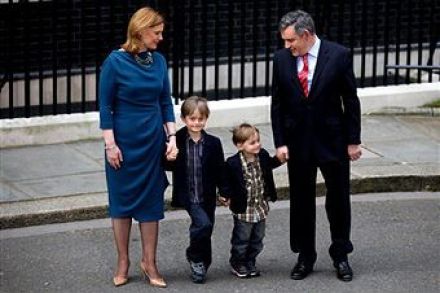Brown speaks out
We’ll try to post the video of Gordon Brown’s interview with the Beeb soon. But, for now, here’s the transcript of his remarks about News International and his son’s medical records: Gordon Brown: [The Sun] told me they had this story about Fraser’s medical condition, and that they were going to run this story. Interviewer:






























